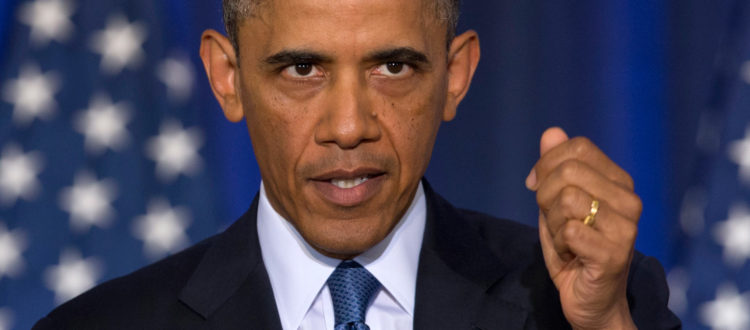Obama’s Other Executive Action on Immigration
Published on April 1st, 2015
Ryan Lovelace
March 31, 2015
National Review
When President Obama issued a series of executive orders on immigration last November, he unleashed a fierce torrent of criticism for granting millions of undocumented immigrants a de-facto amnesty. Lost in all the attention paid to that fight, however, was a lesser known executive action taken at the same time, one which the administration claimed would “modernize, improve and clarify immigrant and nonimmigrant visa programs to grow our economy and create jobs.”
Now, the Obama administration has issued guidance clarifying what exactly their modernized, improved visa system will look like, and it’s not pretty: It appears that the president aims to unilaterally overhaul a critical visa program to usher in a flood of cheap foreign labor, crowding thousands of American workers out of their jobs and potentially discouraging many more from reentering the workplace.
Analysts say the president’s actions, which have gone largely unnoticed by the public, will bring in thousands of foreign workers on L-1 visas to fill job vacancies in the U.S. The visa program allows an employer to transfer an employee within its organization from a foreign office to an American office. Most notably, many Indian workers come to the U.S. on L-1 visas to fill information-technology positions.
The L-1 program is not supposed to replace American workers with foreign nationals. But that’s what’s happening. Michael Emmons, who from 1997 until 2002 worked as an information-technology contractor at Siemens, the multinational engineering giant, was forced to train his foreign replacement when Siemens pushed out its employees in favor of cheaper labor from abroad. (“Forced” is the right word for it, too: The company threatened to withhold severance pay from those outgoing American employees who refused to train their foreign replacements.) The foreign workers were paid far less than the Americans they replaced because the same wage constraints that are in place for the employers of other visa-holders and American workers do not exist for those that use L-1 workers.
“It’s just dumbfounding to me, absolutely dumbfounding,” Emmons says. The government, he says, doesn’t “care about us. They don’t care about me, you, our kids. They care about the corporations that line their pockets.”
Even before November’s executive actions, there was no cap on the number of L-1 visas that could be issued; the program merely stipulates that foreign workers must have “specialized knowledge” of their employer’s operations to be granted L-1 status. The president appears to be trying to redefine the already-vague “specialized knowledge” even more broadly. According to the proposed policy guidance issued by the Obama administration last week, specialized knowledge “need not be proprietary or unique to the petitioning organization,” nor must it be “narrowly held within the petitioning organization.” In other words, “specialized knowledge,” no longer refers to knowledge that can only be ascertained from or useful to a specific company, but may be information that is widely held by workers throughout a given industry.
If the broader definition of “specialized knowledge” is implemented by the Obama administration, then thousands of foreign workers may immediately seek to take advantage of the program. Susan Pai, an immigration attorney, says if the L-1 visa program becomes more attractive than the “H” visa programs, the result could be a rapid increase in visa fraud. The fraud could come from unqualified foreign applicants misrepresenting themselves to obtain L-1 visas, or from employers bringing in foreign workers illegitimately through the L-1 program instead of via other visas. “Instead of bringing people in on Hs, they’re going to start bringing them in droves on the L-1s, so that’s bad news for Americans,” Pai says. “That will be huge.”
The president is hoping his unilateral action attracts hundreds of thousands of foreign workers to America. “My administration is going to reform the L-1B visa category . . . and this could benefit hundreds of thousands of nonimmigrant workers and their employers,” Obama said at a gathering of international businesses at the Gaylord National Resort and Convention Center in National Harbor, Md., last week. “[This action] will benefit our entire economy and spur additional investment.”
The president’s policy may outperform his initial expectations. Doug Ellice, a former DHS inspector general employee, says if the Obama administration wants to do so, it could create a program that soon begins “admitting millions and millions of people.” Ellice claims “everyone” — various agencies of the federal government, immigration activists, and big-business interests — has wanted the change proposed by the Obama administration for decades, but has been previously unable to see it through.
The L-1 program’s malleable cornerstones have inspired the president to reshape its function as he deems fit. If the president has his way, hundreds of thousands of prospective American workers and unsuspecting college graduates could be undercut by a huge increase in foreign labor that results from the president’s actions. — Ryan Lovelace is a William F. Buckley Jr. Fellow at the National Review Institute.





